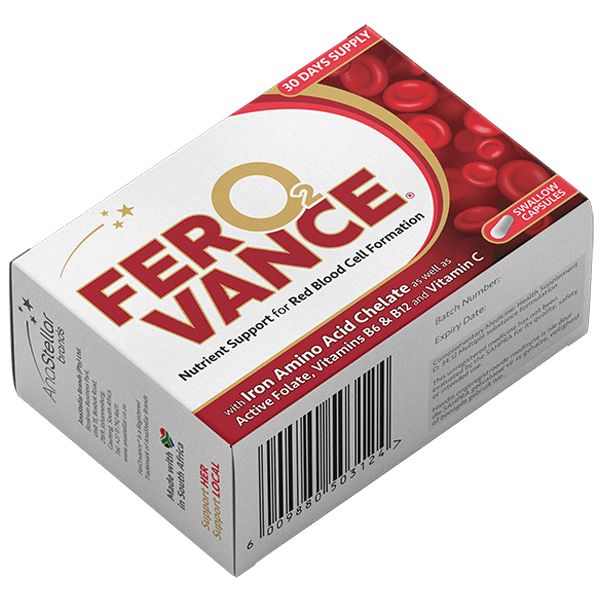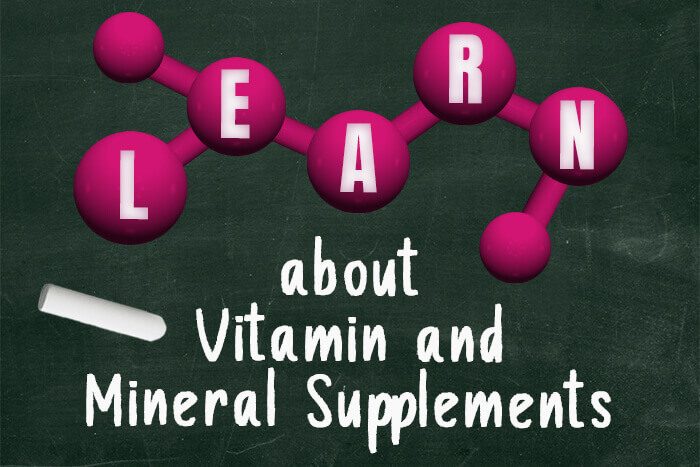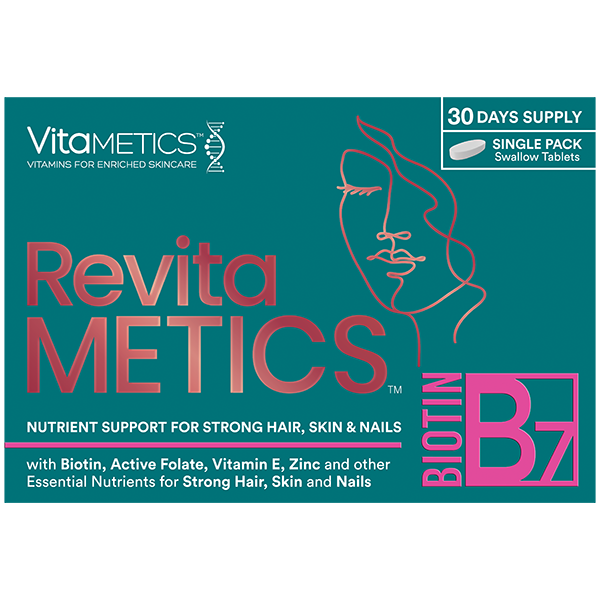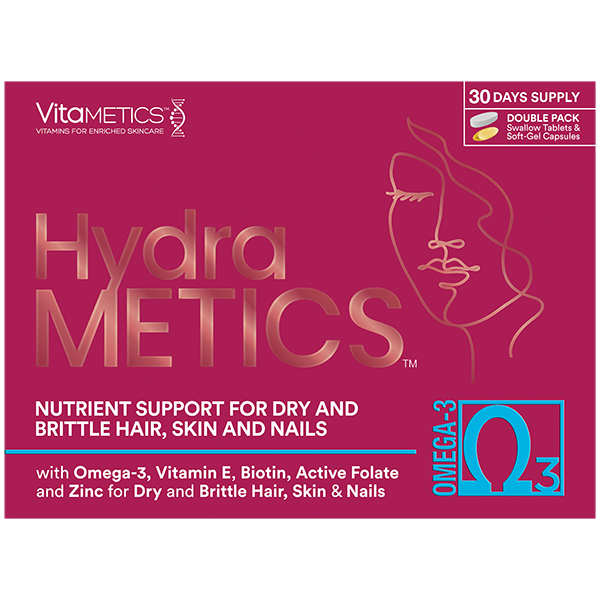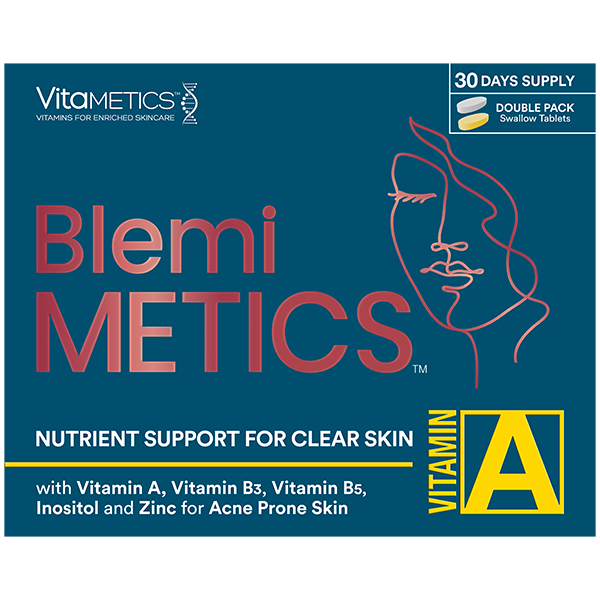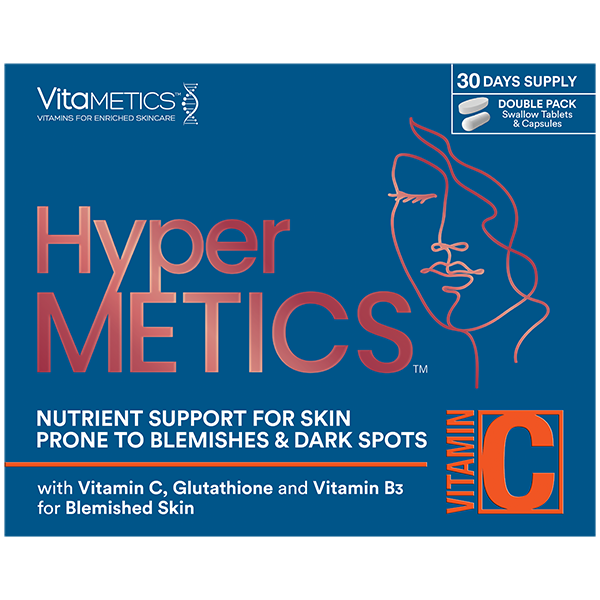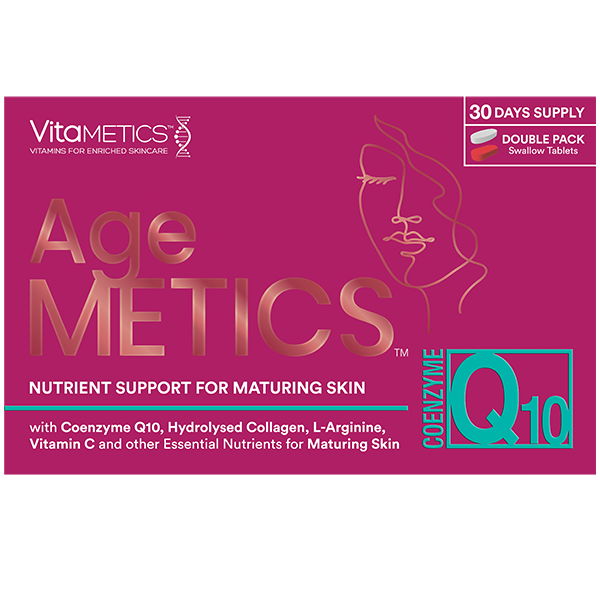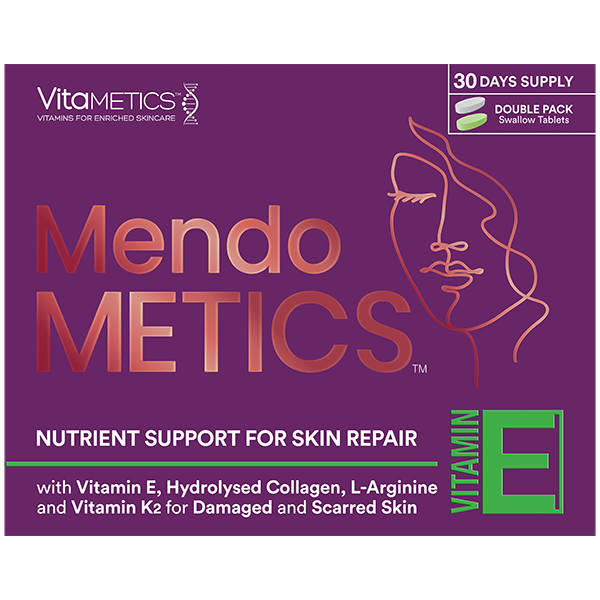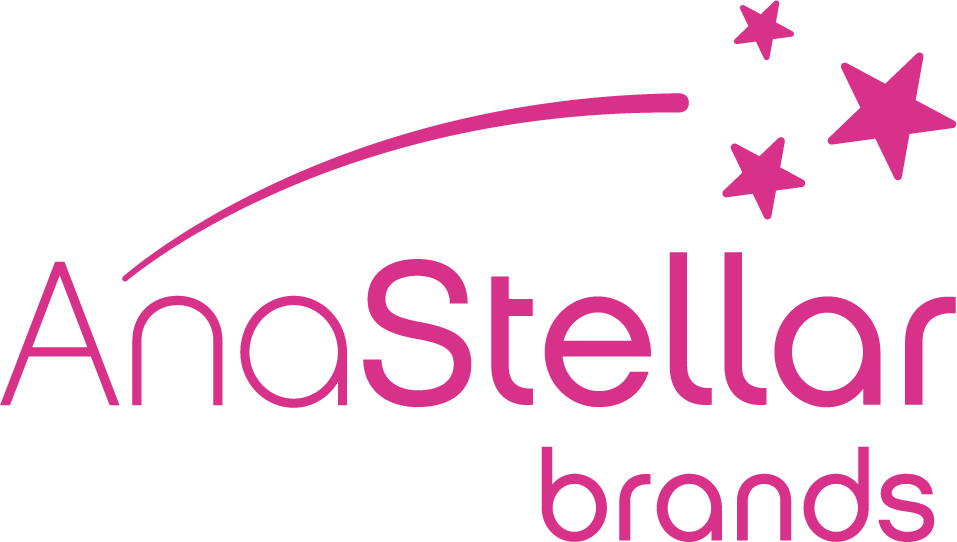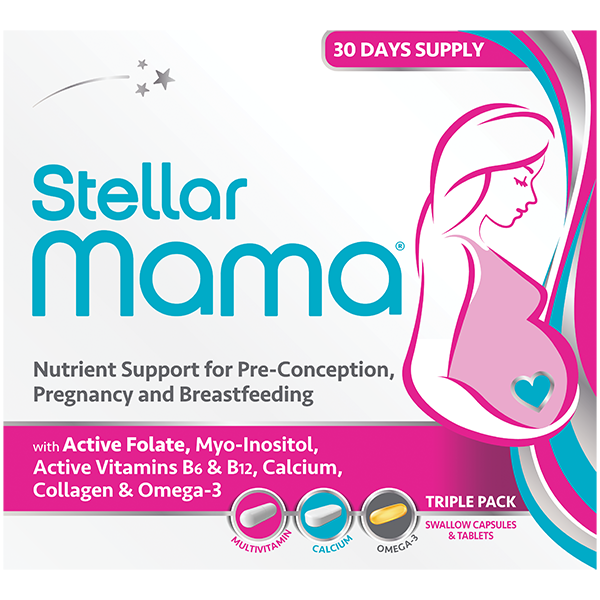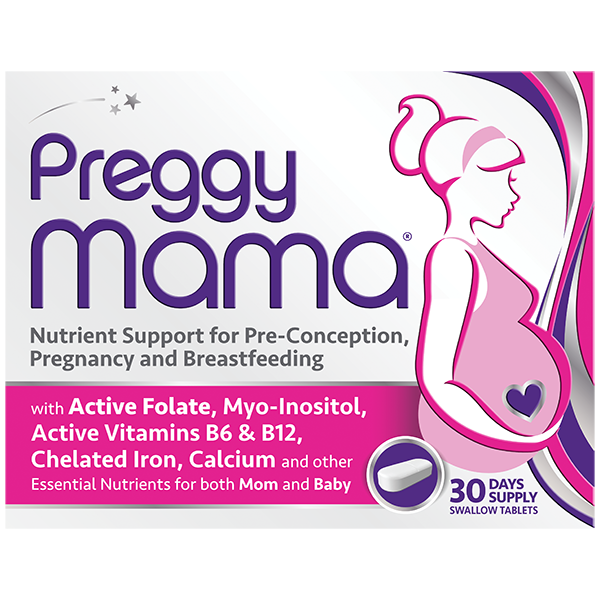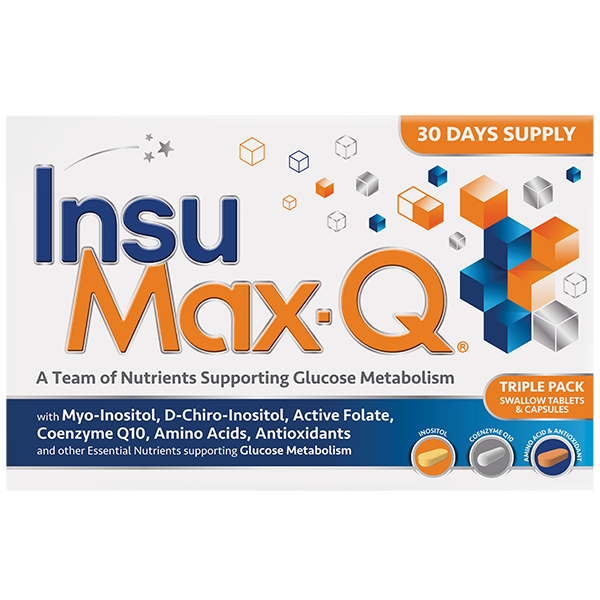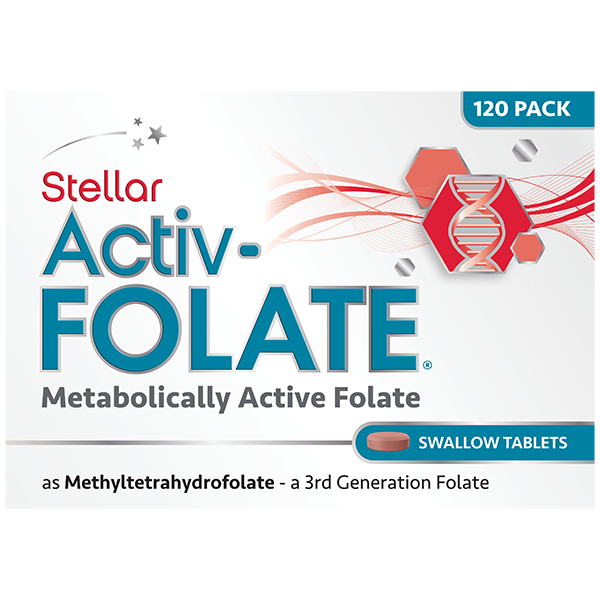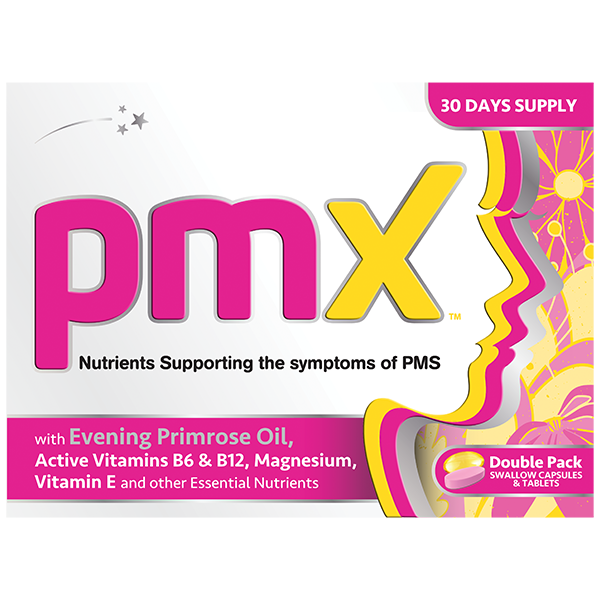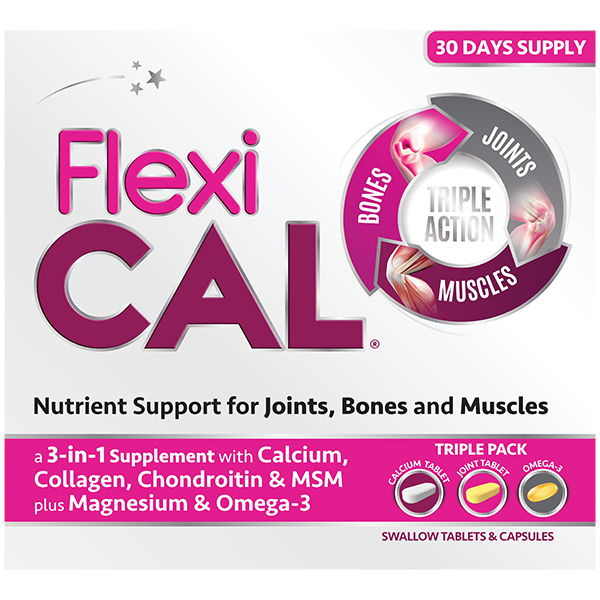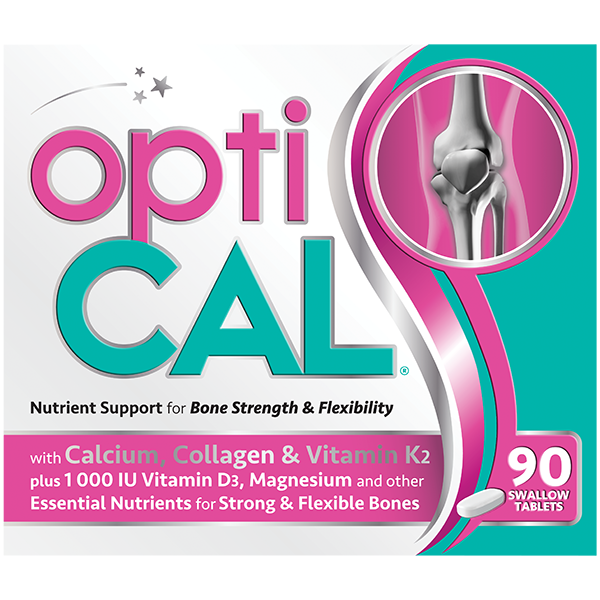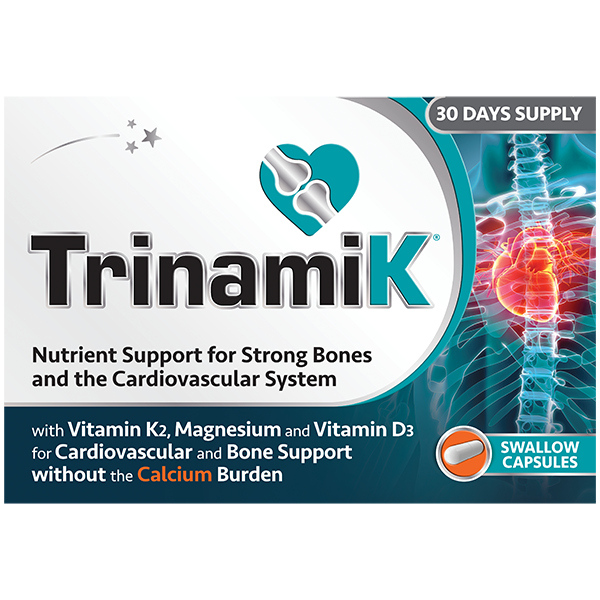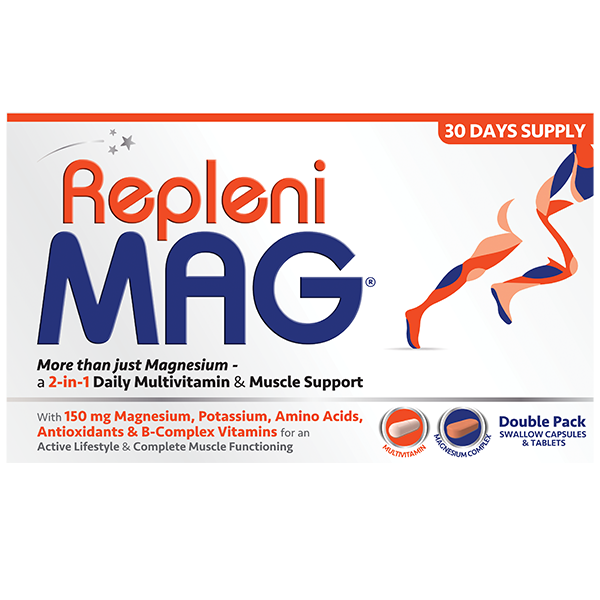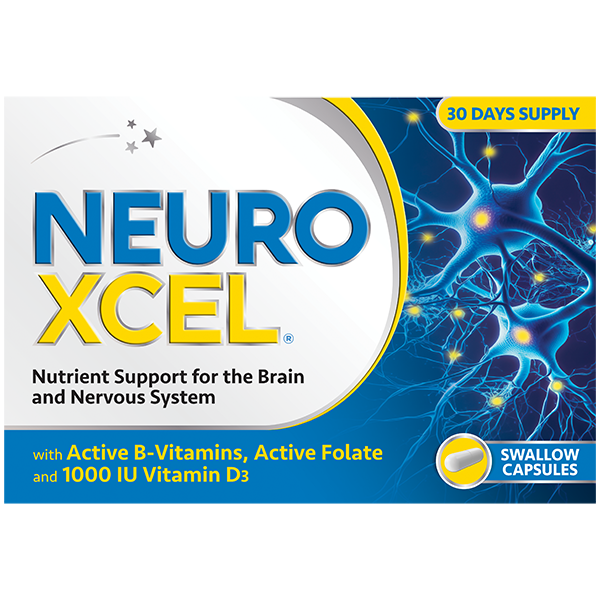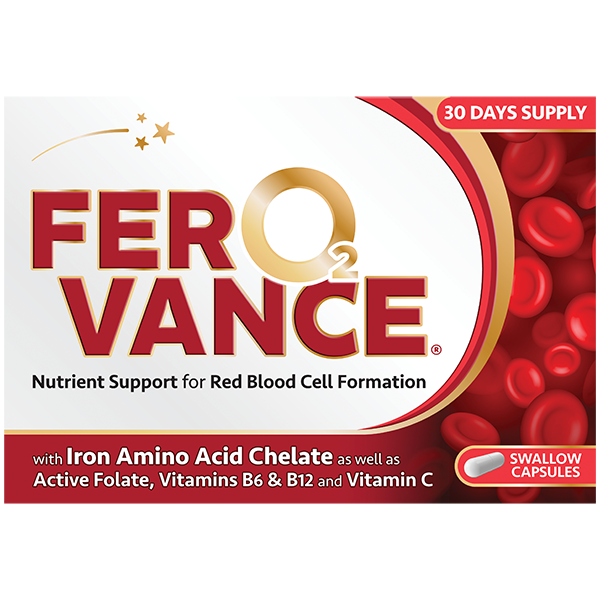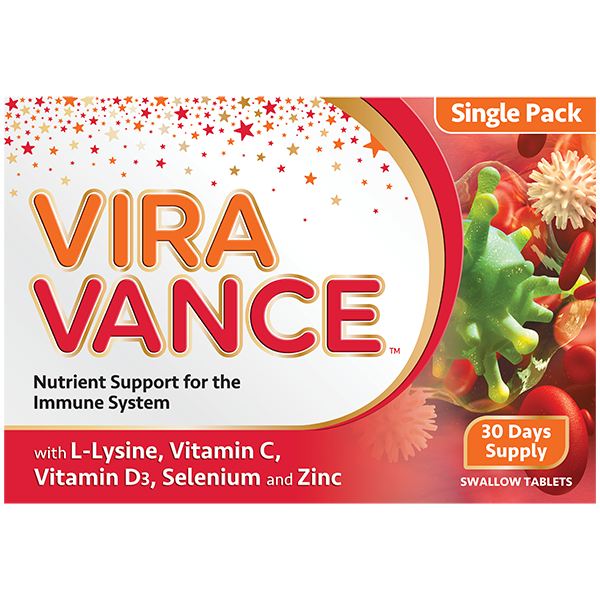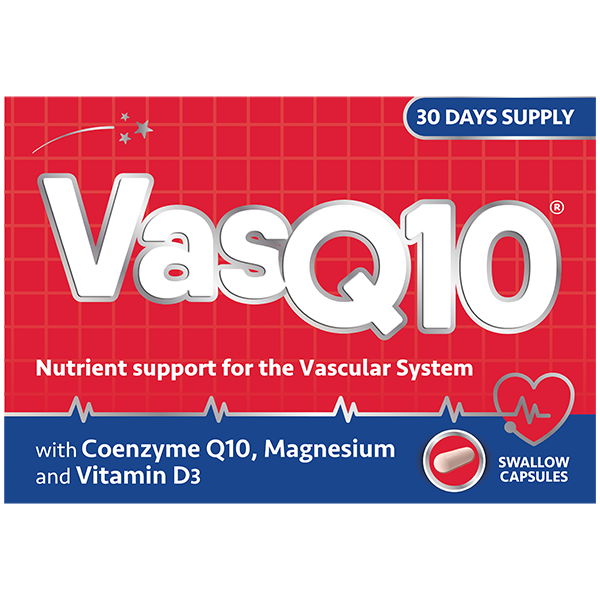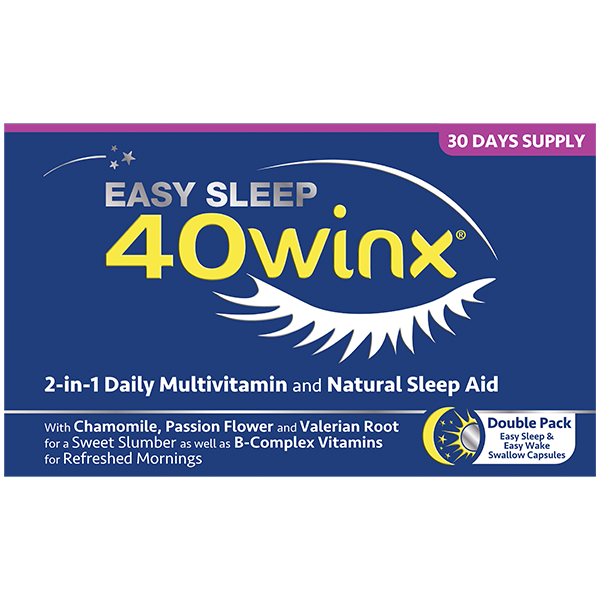FREE SHIPPING FOR ORDERS R500 OR MORE
FREE SHIPPING FOR ORDERS R500 OR MORE

Anemia Treatment
FerOvance
Anemia is a very common blood disorder that results from a reduction in either the number of Red Blood Cells (RBC) or the amount of Haemoglobin in the blood.
Home | Product Ranges | Anemia Treatment
What is Anemia and are there different types of Anemia?
Anemia is a condition in which the blood doesn’t have enough healthy Red Blood Cells to carry oxygen to the body’s organs, or the level of haemoglobin in your body is lower than normal.
There are different types of Anemia:
Iron Deficiency Anemia, known as a Microcytic Anemia
This form of Anemia is characterised by small Red Blood Cells which have reduced quantities of Haemoglobin resulting in a low Oxygen carrying capacity of the Red Blood Cells. The most common Anemia symptom is fatigue. Anemia treatment usually includes Iron. Vitamin C is important for the absorption of Iron.
Megaloblastic Anemia, known as a Macrocytic Anemia
This form of Anemia is due to a deficiency in one of the following nutrients – Vitamin B6, Vitamin B12 or Folic Acid / Folate.
Pernicious Anemia is the inability to absorb Vitamin B12, due to the lack of Intrinsic Factor which aids in Vitamin B12 absorption, (Active Folate (5-Methyltetrahydrofolate) cannot mask a Vitamin B12 deficiency like Synthetic Folic Acid would). This form of Anemia is characterised by large Red Blood Cells that have fragile walls which can burst under pressure. This can result in Haemoglobin being lost as well as in a low Oxygen carrying capacity of the Red Blood Cells. Fatigue is also a common symptom.
Nutritional Deficiency Anemia (NDA) is caused by a lack of Iron, protein, Vitamin B12, Vitamin B6 and other vitamins and minerals that are needed for the formation of Haemoglobin or Red Blood Cells. Folic Acid / Folate Deficiency is a common association of Nutritional deficiency Anemia and Iron Deficiency Anemia is the most common nutritional disorder.
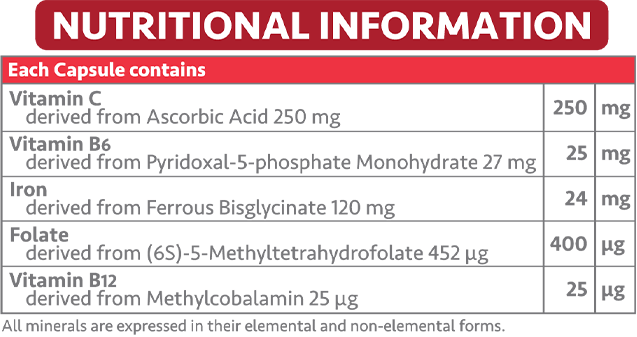
Each FerOvance pack contains a 30-day supply of:
- 30 x White Hard-gel Capsules (Vegan-friendly)
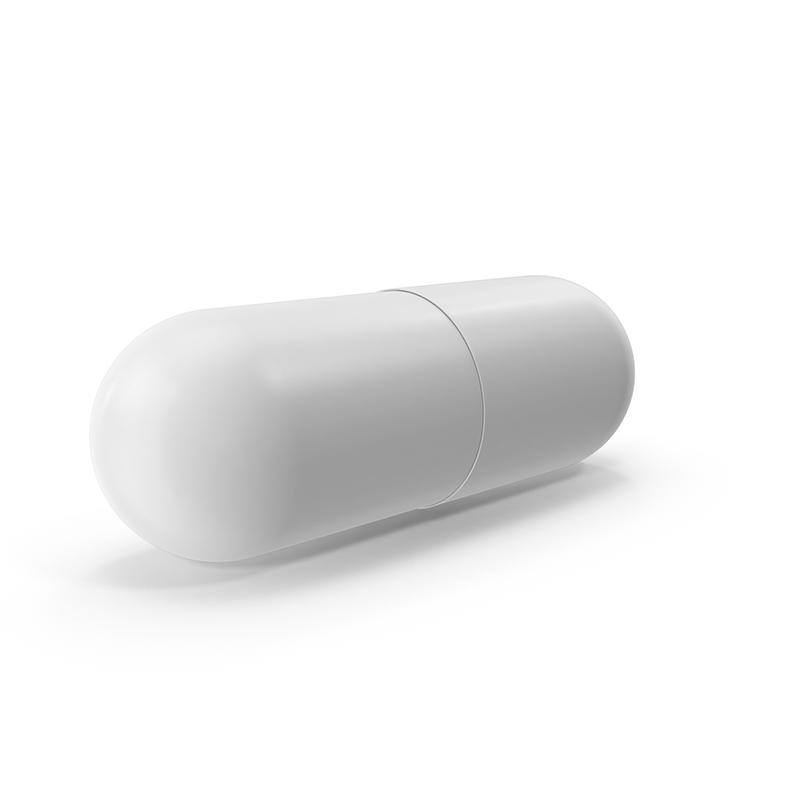
Take one capsule daily with a meal, or as prescribed by your Healthcare Professional.
Helpful Tips for when taking an Iron Supplement:
- Do not take your oral Iron Supplement with tea, coffee, or a high fibre meal as this may impair Iron absorption.
- It is recommended that you take your oral Iron Supplement with a glass of orange juice as Vitamin C assists with Iron Absorption.
- Do not take your oral Iron Supplement on an empty stomach as this may cause nausea.
- Take your Iron Supplement at least 2 to 3 hours before or after taking any chronic medication that you may be on.
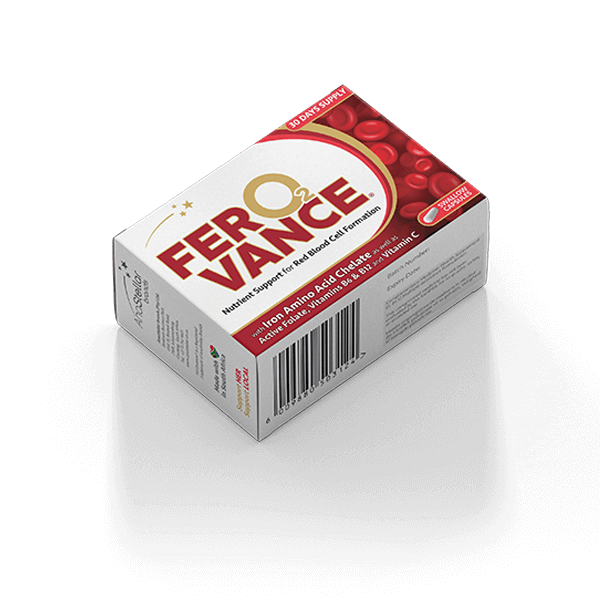
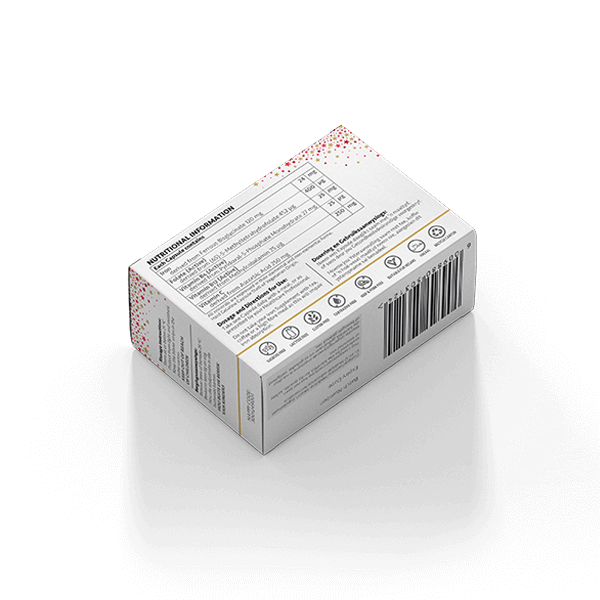
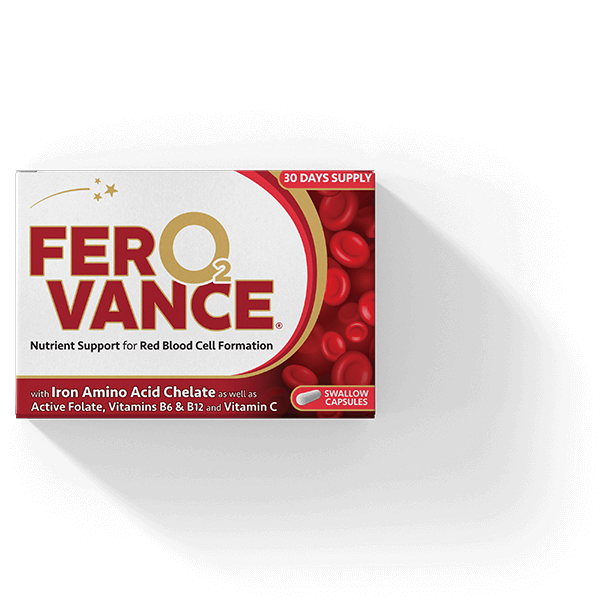
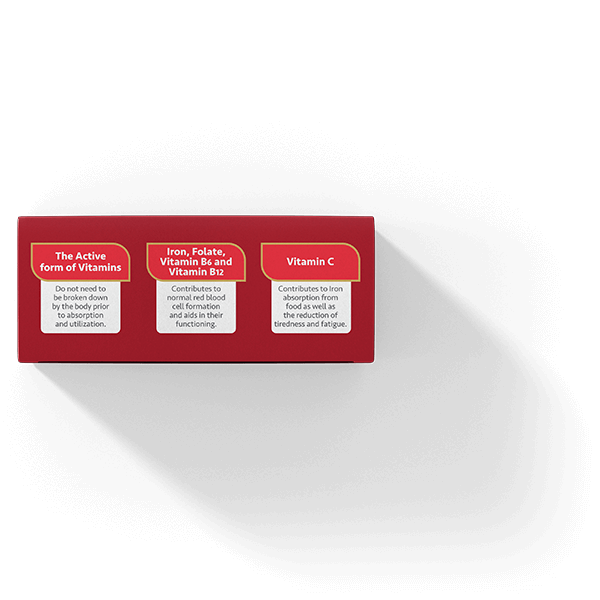
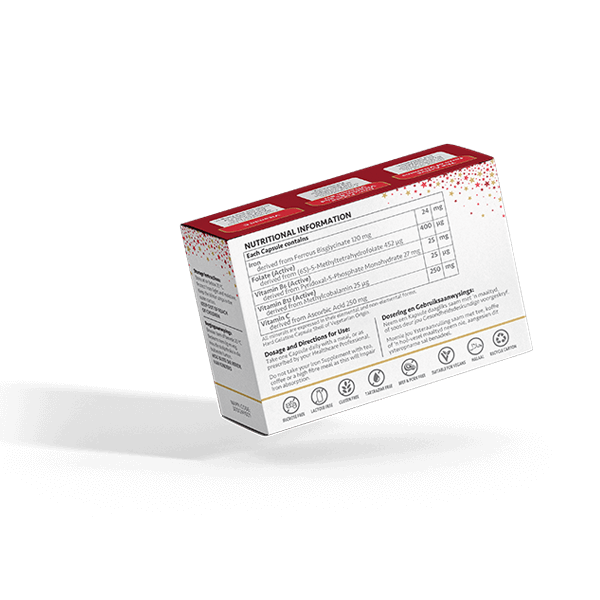
Frequently asked Questions
Ferrous Sulphate is a cost-effective oral Iron salt used in many cheaper Oral Iron Supplements. This form of Iron is known to have gastrointestinal side effects like nausea, constipation, and black stools. And is often associated with poor compliance as people who take it stop taking it.
Yes, you can take Iron vitamins while pregnant. Iron is an important mineral in Pregnancy. During pregnancy, your blood volume doubles and so do your requirements of Iron and other minerals and Vitamins for Red Blood Cell Formation. Pregnancy related Iron Deficiency Anemia is a common condition that occurs in pregnancy and Iron supplementation is often recommended. An Iron Supplement such as FerOvance can be taken in Pregnancy if prescribed by your Healthcare Professional.
Yes, Iron vitamins can help with Iron Deficiency Anemia. If your Anemia is not caused by Iron Deficiency, then you will need to take other Vitamins like Vitamin B6, Vitamin B12 or Folate (Vitamin B9). FerOvance contains both Iron and B-Complex Vitamins and thus can be taken for an Iron Deficiency or B-Complex Deficiency Anemia.
Yes, certain Iron vitamins can cause black stools. Ferrous Sulphate is a cost-effective oral Iron salt used in many cheaper Oral Iron Supplements. This form of Iron is known to have gastrointestinal side effects like nausea, constipation, and black stools.
You do not need a prescription for oral Iron Supplements. There are over the counter oral Iron Supplements that you can buy without a prescription. However, it is recommended that you first test for an Iron Deficiency before supplementing with additional Iron. Intravenous (IV) Iron does need a prescription from a doctor as this type of Iron is delivered into the body by infusion with a needle into a vein.
Anemia is a condition in which the blood doesn’t have enough healthy Red Blood Cells to carry oxygen to the body’s organs, or the level of Haemoglobin in your body is lower than normal.
There are different types of Anemia:
Iron Deficiency Anemia, known as a Microcytic Anemia
This form of Anemia is characterised by small Red Blood Cells which have reduced quantities of Haemoglobin resulting in a low Oxygen carrying capacity of the Red Blood Cells. The most common symptom is fatigue. It is usually treated with Iron. Vitamin C is important for the absorption of Iron.
Megaloblastic Anemia, known as a Macrocytic Anemia
This form of Anemia is due to a deficiency in one of the following nutrients – Vitamin B6, Vitamin B12 or Folic Acid / Folate.
Pernicious Anemia is the inability to absorb Vitamin B12, due to the lack of Intrinsic Factor which aids in Vitamin B12 absorption, (Active Folate (5-Methyltetrahydrofolate) cannot mask a Vitamin B12 deficiency like Synthetic Folic Acid would). This form of Anemia is characterised by large Red Blood Cells that have fragile walls which can burst under pressure. This can result in Haemoglobin being lost as well as in a low Oxygen carrying capacity of the Red Blood Cells. Fatigue is also a common symptom.
Nutritional Deficiency Anemia (NDA) is caused by a lack of Iron, protein, Vitamin B12, Vitamin B6 and other Vitamins and Minerals that are needed for the formation of Haemoglobin or Red Blood Cells. Folic Acid / Folate Deficiency is a common association of Nutritional deficiency Anemia and Iron Deficiency Anemia is the most common nutritional disorder.
